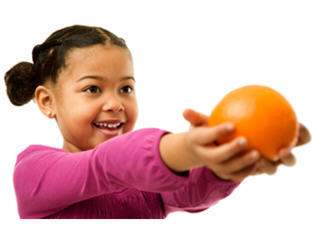
Giving Preschoolers Choice Increases Sharing Behavior
August 19, 2013—Getting kids to share their toys is a never-ending battle, and compelling them to do so never seems to help. New research suggests that allowing children to make a choice to sacrifice their own toys in order to share with someone else makes them share more in the future. The new findings are published in Psychological Science, a journal of the Association for Psychological Science.
These experiments, conducted by psychological scientists Nadia Chernyak and Tamar Kushnir of Cornell University, suggest that sharing when given a difficult choice leads children to see themselves in a new, more beneficent light. Perceiving themselves as people who like to share makes them more likely to act in a prosocial manner in the future.
Previous research has shown that this idea—as described by the over-justification effect—explains why rewarding children for sharing can backfire. Children come to perceive themselves as people who don't like to share since they had to be rewarded for doing so. Because they don't view themselves as "sharers" they are less likely to share in the future.
Chernyak and Kushnir were interested in finding out whether freely chosen sacrifice might have the opposite effect on kids' willingness to share.
"Making difficult choices allows children to infer something important about themselves: In making choices that aren't necessarily easy, children might be able to infer their own prosociality."
To test this, the researchers introduced 3-5 year-old children to Doggie, a puppet, who was feeling sad. Some of the children were given a difficult choice: Share a precious sticker with Doggie, or keep it for themselves. Other children were given an easy choice between sharing and putting the sticker away, while children in a third group were required by the researcher to to share.
Later on, all the children were introduced to Ellie, another sad puppet. They were given the option of how many stickers to share (up to three). The kids who earlier made the difficult choice to help Doggie shared more stickers with Ellie. The children who were initially confronted with an easy choice or who were required to give their sticker to Doggie, on the other hand, shared fewer stickers with Ellie.
"You might imagine that making difficult, costly choices is taxing for young children or even that once children share, they don't feel the need to do so again," Chernyak says. "But this wasn't the case: Once children made a difficult decision to give up something for someone else, they were more generous, not less, later on."
Another experiment supported these findings, illustrating that children are more generous after choosing to share valuable toy frogs compared to non-valuable ripped pieces of paper. Those who initially shared the frogs with Doggie shared more stickers with Ellie later on. Those who readily shared the paper, on the other hand, shared fewer stickers with Ellie. Therefore, children did not benefit from simply choosing to give something up, but rather from willingly choosing to give something up of value.
"Given the high amount of emphasis we place on choice during early childhood, especially in this culture, it is important to delineate specifically what choice might do—and not do—for young children," Chernyak says.
"Children are frequently taught to share, be polite, and be kind to others. In order to bring us closer to one day figuring out how to best teach children these skills, it is important to figure out which factors may aid in young children's sharing behavior," Chernyak concludes. "Allowing children to make difficult choices may influence their sharing behavior by teaching them greater lessons about their abilities, preferences, and intentions towards others."
ARTICLE:
"Giving Preschoolers Choice Increases Sharing Behavior," Chernyak, N., and Kushnir, T. Psychological Science. Published online before print August 16, 2013, doi:10.1177/0956797613482335.
